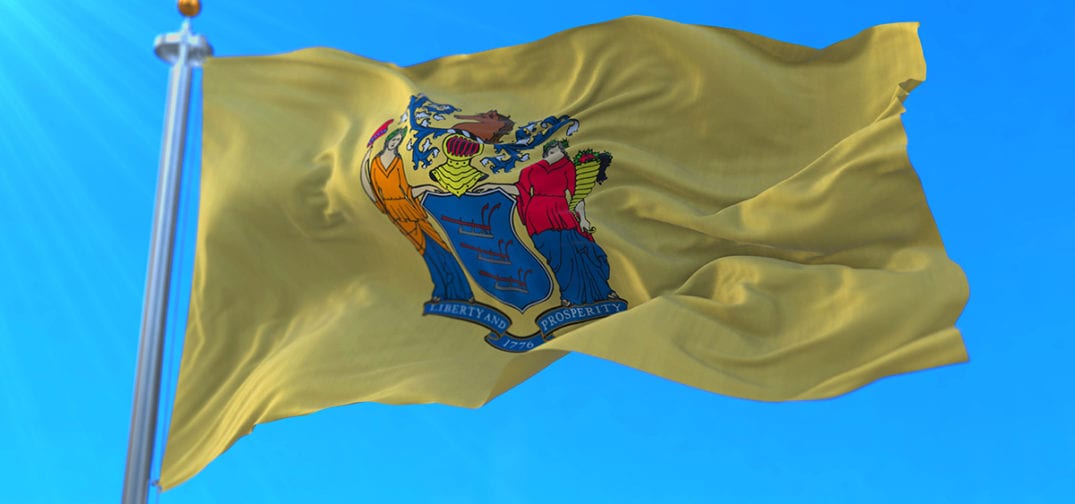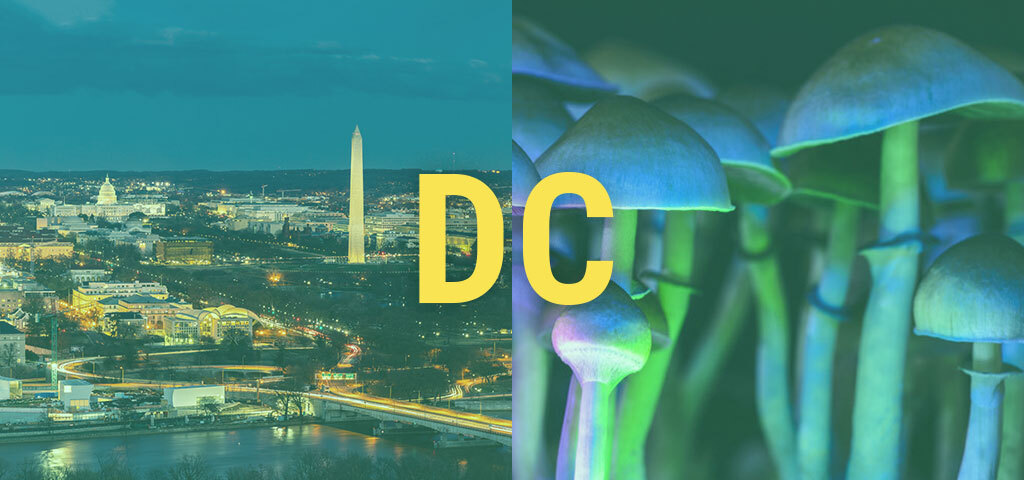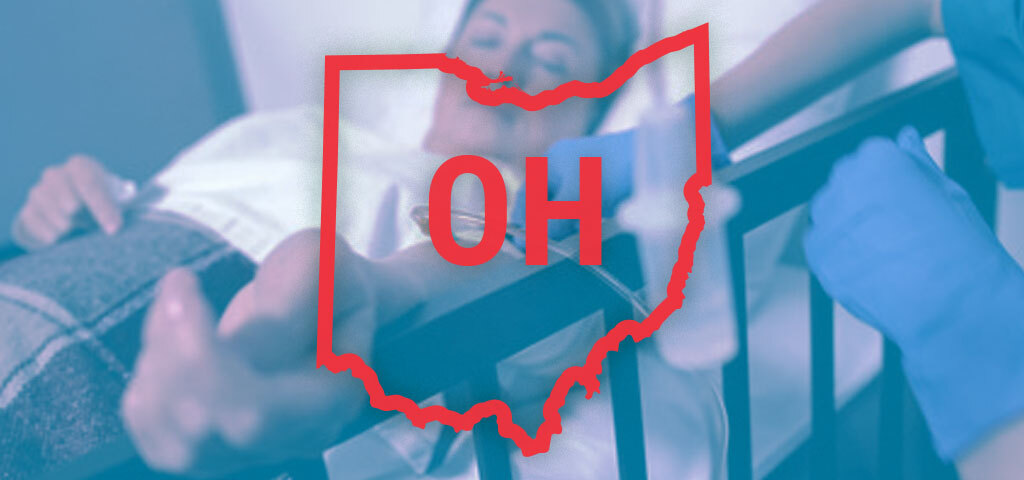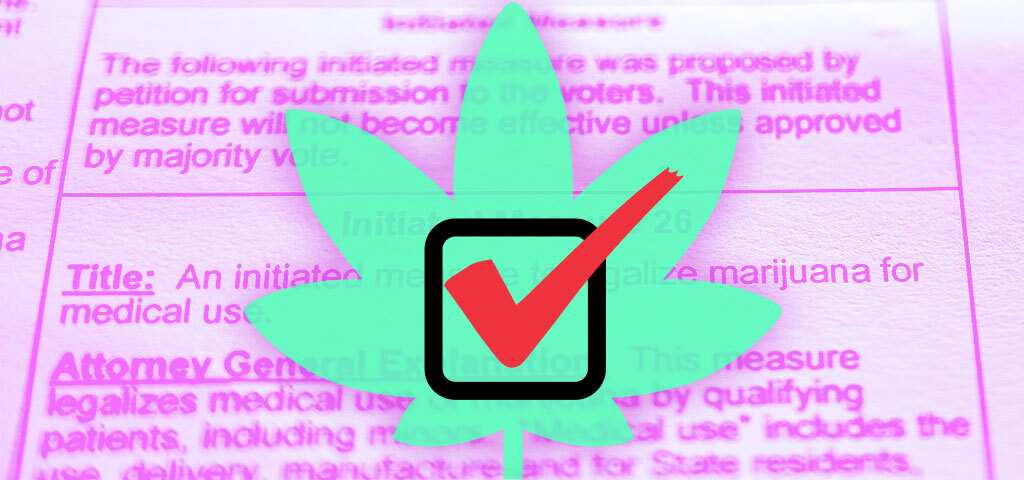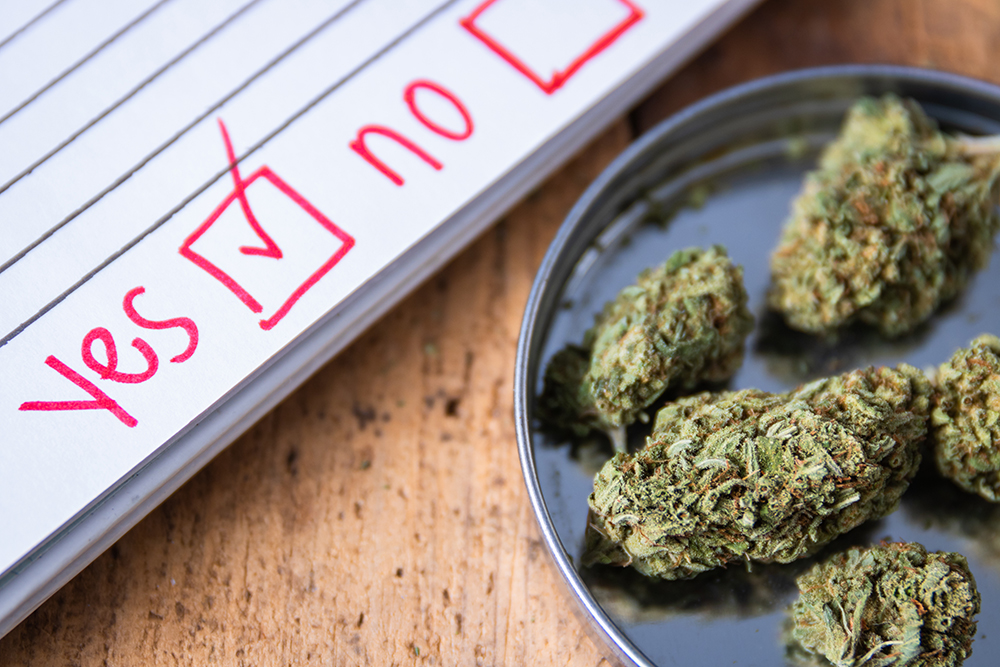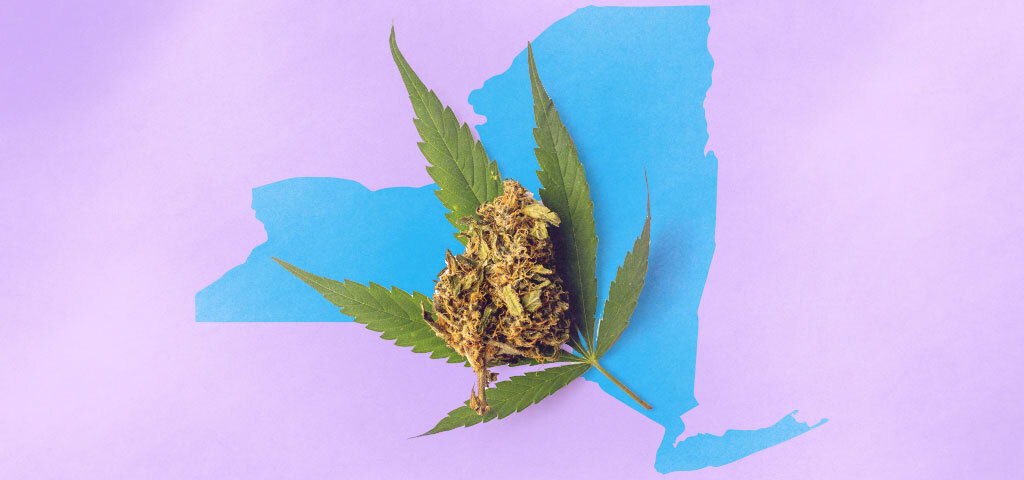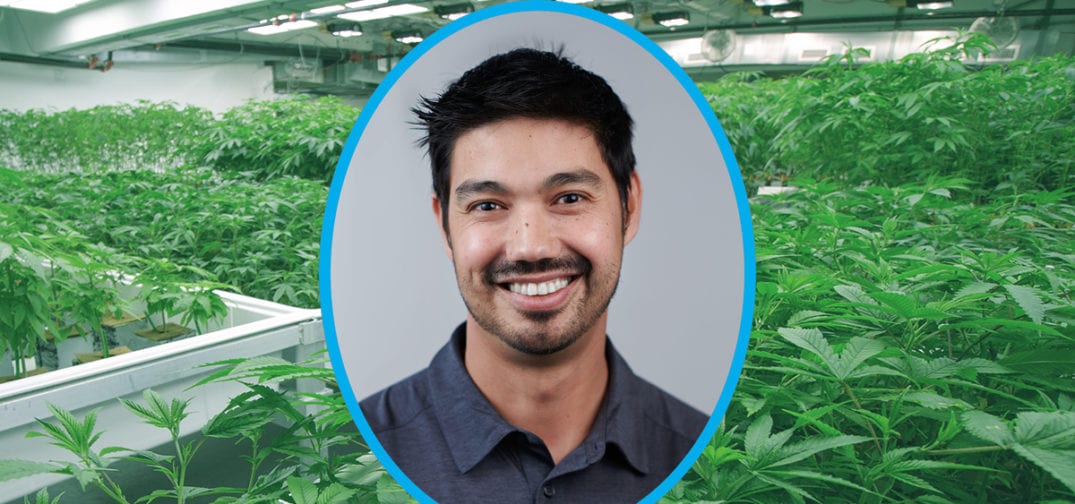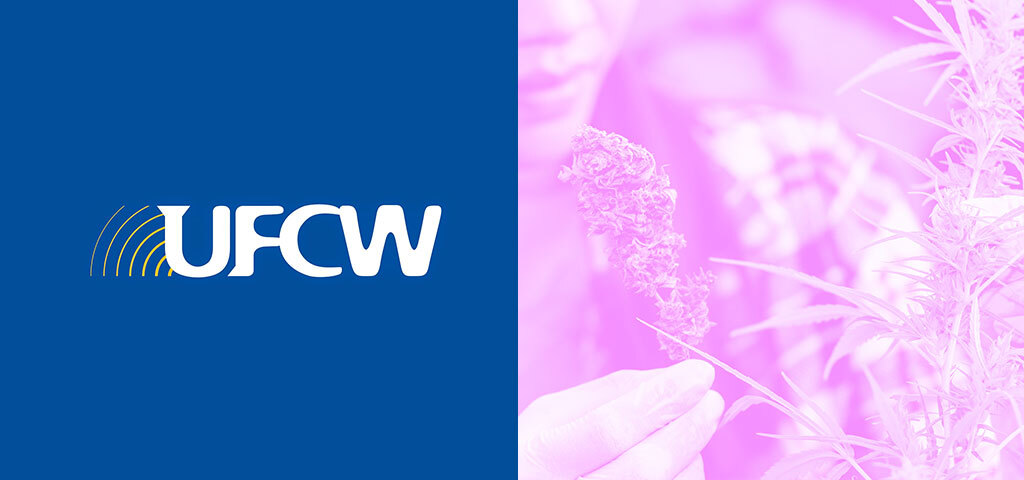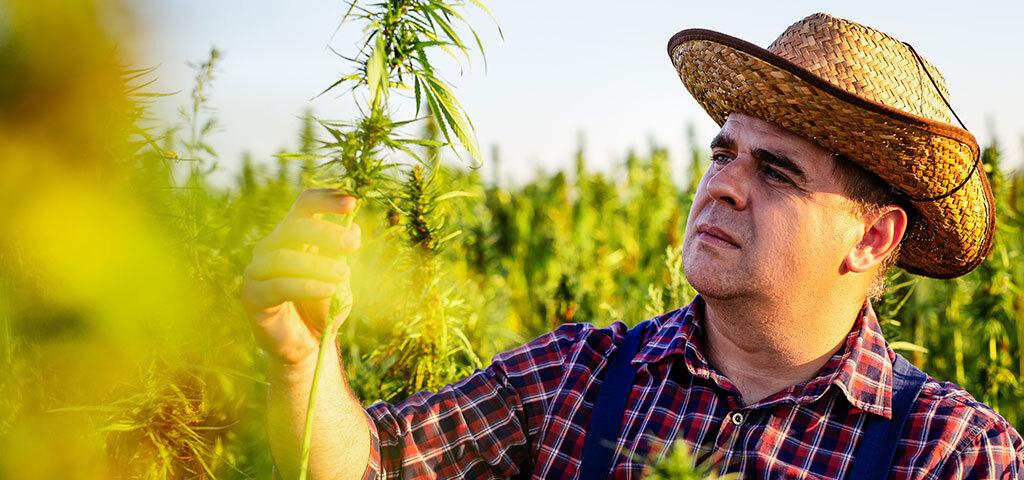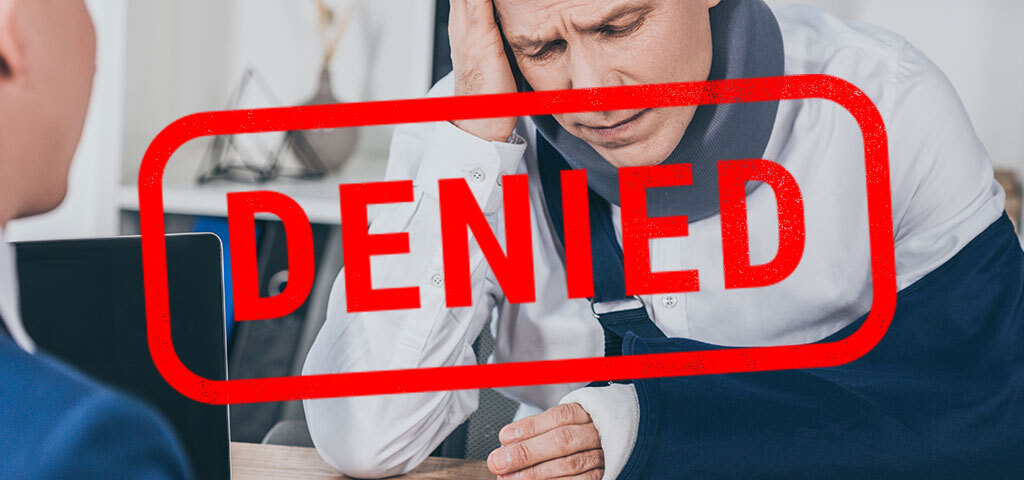After co-founding and leading Illinois’ PharmaCann for several years, Teddy Scott departed to found Ethos Cannabis, a multistate cannabis operator based in the U.S. Mid-Atlantic and East Coast regions.
Teddy recently spoke with our podcast host TG Branfalt about his experience and the complexities of founding and operating a multi-state cannabis company. Their conversation also explores the co-existence of corporate and craft cannabis, the rapid growth of cannabis business in the Midwest and East Coast regions of the U.S., the importance of effective social equity provisions, Teddy’s advice for industry newcomers and entrepreneurs, and more!
Tune in to this episode of the Ganjapreneur.com Podcast below or through your favorite podcast platform, or scroll down to read a full transcript of the interview.
Listen to the podcast:
Read the transcript:
Commercial: This episode of the Ganjapreneur Podcast is brought to you by CannaPlanners. CannaPlanners is on a mission to normalize the emerging cannabis industry through beautiful design and professional web and marketing solutions. Whether you’re looking to create a new cannabis brand, improve your packaging design or get your company online, CannaPlanners has the perfect solution. Your website is the window into your cannabis company. Make sure that you look awesome, that your messaging is on point and that traffic converts to customers through SEO. From CBD companies to dispensaries and everything in between CannaPlanners has you covered. Visit them online today at CannaPlanners.com for a free web demo. That’s cannaplanners.com.
TG Branfalt: Hey there, I’m your host TG Branfalt and thank you for listening to the Ganjapreneur.com Podcast where we try to bring you actionable information and normalize cannabis through the stories of ganjapreneurs, activists and industry stakeholders. Today I’m joined by Teddy Scott, who is the CEO of Ethos Cannabis, a multi-state operator developing a vertically integrated retail-focused platform in the Mid-Atlantic and East Coast markets of the US. Teddy holds a PhD in molecular biophysics from the University of Texas, and a JD degree from the Northwestern University School of Law. He’s also worked in pharmaceutical research and practiced intellectual property law. He’s also an advisor to the University of Chicago’s Innovation Fund. That’s one hell of an intro. Lots of stuff going on there, Teddy, how you doing?
Teddy Scott: I’m doing great. Thanks, sir. How you doing?
TG Branfalt: I’m doing well, man. It’s great to have you on. You’re a really interesting cat just from your intro alone. And I did some research on you and I’m real excited to pick your brain a bit. But before I get the opportunity to do that, tell me about yourself, man. How did you end up in the cannabis space?
Teddy Scott: It’s an interesting story. It was one of those things you can’t script out. If you’d asked me 10 years ago, hell, even seven years ago, if I were where I am now doing what I’m doing I would have said you were crazy. I had a background in medical research, went to law school and was a corner office equity partner at a big national law firm, I was located in downtown Chicago. Knew virtually nothing about cannabis.
TG Branfalt: What did you know about cannabis then?
Teddy Scott: What I knew about cannabis was the same stuff that all the other people in this country that are ignorant to it, because of what they’ve been told and led to believe the misinformation for so long. That’s pretty much all I knew. I knew nothing about it. And what happened was it was an interesting time period. It’s really critical to remember, and it was January 2014. I’ll never forget it. I was at a point in my life that it was probably the right time for me. I had reinvented myself a number of times. But I’d gotten to a point as like, “What am I going to do next?” I had four relatively young children, “Gosh, I can’t really go off and do anything new. I need to just hunker down and just continue being a lawyer. And just once my kids are in college, I’ll look at doing something else.”
And what happened was, it was January 2014, a friend reached out to me. It was an email. I remember laying in my bed on a Thursday night, and an email came in. It was a physician friend of mine and said, “Hey, I know some people that are from Arizona, that are coming to Illinois to apply for medical cannabis licenses. And they’re looking to raise money, do you want to invest?” And it was just boom, it was an immediate thought of “No, I don’t want to invest. I want to look at this.” And I like to say all the time, if Google had not been around, I would not be where I am.
The power of the amount of information that is out there, podcasts that are out there that I started listening to. And the reason I did was, as I tell the story to people to remember. It was very fortuitous for me because that was January of ’14. And what had happened only a couple of weeks earlier, January 1, 2014. That was when rec sales started in Colorado. And I don’t know if you remember, but it was on the news everywhere.
TG Branfalt: Yeah.
Teddy Scott: And I think what happened was by being a lawyer I had a sense of the way laws are made, how they’re interpreted the way they evolve. They’re a measure of society. And I just had this sense that things were changing, you couldn’t help but see what was happening in Colorado a couple of weeks beforehand. And it just made me start looking. And that’s what you do as a researcher, I happen to have a PhD, it’s what you do you research, you dig in, you see a question you want to understand it. As a lawyer, that’s what you do.
And I just started digging and what happened within, it was probably a couple of days, it was very quickly after that, that I got that email. What I realized is, I was digging into what was known at the time about the science of cannabis. I was like, “Oh, my gosh.” Because I know very well what drug companies do, the types of discoveries they make. With my PhD, I very much understood how receptors work, how drugs work, interacting with them, and the effects that happen. And as I was looking at this, I was like, “Wow, there’s really something here. I don’t know the answer.” And quite frankly, I don’t think anybody does with specificity. But it looks like there’s something here.
TG Branfalt: What was the thing for you? You said that you didn’t really know much you start googling, you start researching. Once you noticed that there’s some interest there for you. What was the thing for you that the light bulb went off?
Teddy Scott: Yeah, there were a couple of light bulbs. And they happened really quickly, really, within just the first couple of weeks, I was looking at it. The one was, I’ll call it my passions, because at first it was intellectual. I was thinking of it as a technical lawyer, I was thinking of it as maybe a scientist, that’s very technical in nature.
The first was, as I was looking at it, and I was looking at just the science of it. One of the things that was interesting for me, or has made an impact on me is one of my clients, as a lawyer was an opiate manufacturer. They’re one of the good ones. There’s a lot of bad press out there, and well deserved, by the way, for certain companies out there. The one I was working with was ethical. They were spending tons of money, trying to find new opiates that weren’t addictive. Ones that could provide pain relief, but were not addictive.
And I knew very well, in a way that people in the country at the time. The opiate epidemic only became pop… No, I don’t want to say popular, I’ll say really well known in the last few years. But I was well aware of it going back quite a while. And so when I was looking at the science of it, what was known and just I was like, “Oh my God, this could be…” That was I was saying … I was like, “Wow, this could be an alternative, one of the solutions to fill in that gap for true chronic pain.” I mean, there’s hundreds of millions of people that are suffering from chronic pain and you have a choice of Advil, or Fentanyl. I mean, there’s a huge gap.
TG Branfalt: And it’s hard, right, to compartmentalize. Patients can’t tell doctors how they’re feeling pain oftentimes.
Teddy Scott: Well that’s a pain is a weird thing. The same thing might happen to you, to somebody else, you might think, “Eh, I’m okay. I can get by with a couple aspirin.” Like Jeff Sessions said a couple years ago, “Just take a couple aspirin.” But for somebody else they might be in agony. And what are you supposed to do? Are you supposed to say, “Screw you, deal with it?” Are you supposed to honor them and respect them and go, “You know what, you’re in agony, I need to try to help you.”
And what it helped that, that was one of two things. But what that did for me was it made it no longer technical in nature, intellectual in nature, it really personified it. And the sad thing for me personally, was very shortly after I started, it was before the company had got going, it was before we’d won any licenses. We were still in this planning stage. My father was diagnosed with his first of two primary cancers. He passed away a couple of years ago.
TG Branfalt: I’m sorry.
Teddy Scott: And it became really personal as I saw him, I’m from Texas, that’s where he was. And I saw him living in a state where it was illegal. And I mean, he was dying. He was in agony. And he was a physician. He was a physician. And he almost overdosed on opiates, just as he was trying to deal with the pain of the radiation therapy and just the pain of cancer. And he’s like to me, “Son, can you get me some cannabis?” I’m like, “Sorry, dad I can’t. Down here… I’m up there. You don’t live up there, where it’s legal or available.” And actually he was able to get some through sources, it was totally illegal down there. And it helped him, it helped him. It helped us reduce his opiates.
TG Branfalt: Had he done research, or it was a last-ditch effort for him?
Teddy Scott: It was a… Yeah, it was purely… He’s palliative care. He knows he’s dying, he’s just in agony. And it was purely just a last ditch effort for him. So that was one thing that made it… I mean, one thing I’ve said before, and it’s one of the things I’m very thankful for. And I’ve had a lot of… I’m very thankful in my life for my family, my education, I’ve had a lot of opportunities. But the one thing that was missing, I didn’t realize until I got into cannabis, I never had a cause. Something I really believed in. And this has really provided it for me.
And so that was one thing that… It’s easy enough, okay, people might chase money, or fame, or success, whatever it might be. It’s really powerful when you’re doing something beyond that, bigger than that. And cannabis has been that for me. And it became that, so that was one of those ah-ha moments really quickly. To be totally frank, when I first started looking at it, one of the first things I did was a spreadsheet model of a business model. And you could see big numbers and the dollar signs, that’s kind of that technical thing. But it quickly switched into this personal mission driven trying to do something. And so that was one thing, but I still didn’t know anything about cannabis. I just saw the potential for it.
TG Branfalt: Well, so let’s talk a bit about that your first roles, your first experiences with the company and where you are now. You started, or at least worked for a time as executive at PharmaCann, which is very well known. And now you’ve founded your own company, Ethos Cannabis. So what was the impetus or imperative, behind the founding of your own firm? Meanwhile, you’re at, or had been at one of the largest in the country? And how did the experiences differ?
Teddy Scott: Well, I actually founded PharmaCann, Ethos is my second company to really start. PharmaCann was the first one. So that January of ’14, what led to it, is me and a couple of co-founders, we founded PharmaCann. And so I was the CEO and one of the co-founders of PharmaCann. And so that was in 2014. We formed the company, we won our licenses in February of ’15. Myself and one of my co founders, it was a partner and me at my law firm, we quit and went to go work in the cannabis business.
TG Branfalt: You just quit.
Teddy Scott: We just quit. And I’ll just go back real fast, because it’s relevant to the transition, is that what happened in the beginning, I’m starting to think about getting into this. And I don’t know anything about cannabis. Well, that doesn’t make any sense. How are you going to start a business and you don’t know the actual… You don’t know the product. You don’t know the market. You don’t know anything about it. And there were two things. One was as I was saying Google and listening to podcasts. There’s a great podcast, Free Weed. I’m not sure if you’re familiar with it but I learned a lot from Danny Danko. The host of that, Free Weed. I learned a lot about cannabis from Danny Danko.
TG Branfalt: I learned about Danko from High Times Magazine. So when I was younger, and I would read High Times, and then he has a podcast much later anyway, it’s interesting.
Teddy Scott: Yeah. But the thing was, I went out to start to see operators in Colorado, California, wherever it might be. Just, I was like, “I got to find a partner because I don’t…” I’d never seen a cannabis plant.
TG Branfalt: Really?
Teddy Scott: Yeah, they’re unbelievable. It’s one of the craziest things. And as I went out there, that was the other ah-ha moment. There’s a thread of it all the way through today. As I was out there, I was touring, I won’t mention their name, but they were one of, if not the biggest operator in Colorado. I mean, they had tons of dispensaries and very well regarded. Very successful. But as I was watching their operations, how they were growing their grow facilities and the way they were doing things. As I was watching it, I went into that thinking, “I’m at a competitive disadvantage, because I don’t know cannabis.” But as I was watching them, I was like, “Wow, I actually have an advantage. They know cannabis right now. But they don’t know technology. And they don’t know how to run a business. They don’t know how to scale a business, huh, I know how to do that.”
And so that became really the big ah-ha moment. Beforehand, I had been thinking “Oh, I’m just going to start a small business.” But then I saw the opportunity to grow a big business. That I could see, or I thought what I saw and I’ve been right so far, is I thought I saw where cannabis was headed, that it was going to go from underground to a legal respected opportunity in business. Yeah, but at the same time, as that happened, look at any business. They start off manual, non-automated, unspecialized with technology. And what happens? They get more and more specialized, higher and higher technical, higher and higher quality, more and more reproducibility, innovation, iteration. That’s the way any business is. And I saw that.
TG Branfalt: Or they get pushed out for not doing those things.
Teddy Scott: Exactly. That’s the way it works. I’s an unfortunate thing. That’s why societies, you have to always have education, you have to have job training, you have to have advancement, because if you just keep doing the same old thing you’re going to get passed by. That’s just the nature of everything. And I saw that. And so that was really one of the key things that led to the founding of PharmaCann. And PharmaCann is not the only company that did it. We were in Illinois at the time, at that in 2014. And there’s tons of other companies that did the same thing.
Back in, I think it was ’15. I was talking to a very high up elected official in Illinois. And I was talking to him. And this was in early ’15. And I was like, “Do you know where the leaders of cannabis are going to be?” And he’s like, “I don’t know, Colorado, California?” And I’m like “I understand that you’re saying that, because that’s what everybody would say.” I was like, “That’s not it. It’s going to come here to Illinois.” He’s like, “What are you talking about? We don’t have anything, we don’t…” And I was like, “Where this industry is headed it’s no longer going to be these artisanal family, small business, it’s going to be big. It’s going to be sophisticated. It’s going to be corporate. That’s where it’s headed.”
And look at all these companies here in Illinois. GTI, Cresco, Verano, PharmaCann, Grassroots, I mean, those are big leading companies now. And go back to, I think it was 2015, I remember was like on the MJBizDaily, or one or maybe High Times what are the first billion dollar companies in cannabis going to be? And there wasn’t a single company from Illinois on there, now look at all those big companies. And there’s ones that are outside of Illinois but Illinois, I think it’s one of if not the highest concentration of big, well capitalized operating companies. And it’s all because of that Illinois was really at the precipice of when the wave changed from West smaller companies to these highly regulated sophisticated companies on the East Coast.
And so PharmaCann got started. And we started and as a basic strategy that I had at the time, and it’s not it’s not the same today, but it was back then is I would rather have hired someone that didn’t have cannabis experience, because what I was looking for is, do you know how to manufacture consistently? I’d rather you know how to grow acres and acres of poinsettias then to grow five marijuana plants? Okay the horticulturist that knows how to safely organically prevent pest and have a high degree of production and quality and consistency. That’s what I was looking for. Not someone that knew how to grow marijuana, and with the theory being, it may take some time. But the horticulturist can learn how to apply their experience to growing cannabis. But I can’t teach a master grower that can grow really good weed in their basement or in a small grow room. I can’t teach them how to grow hundreds of thousands of square feet in controlled environmental conditions, if that makes sense.
That was the basic and we as a company, myself and the other leaders we hired at PharmaCann, it took us a couple of years to figure stuff out, we didn’t know what the hell we were doing. I mean, the people that built our facilities when we built our first production facility we brought in all these engineers, and these architects and these horticulturist, and they’re doing their best to build this facility. But it’s never been done before the size, the people doing it have never done it before, you’re taking your best guess. But guess what, it’s a guess. You need to have some practice to learn and iterate. And so those first few years were spent just learning. People that had these skill sets to learn how to apply it to cannabis. And so, at PharmaCann like I said, the first few years were really spent learning and we thought that was okay, because the market in Illinois at the time was so small. And when we expanded to New York, once again, the market was so small.
The thought at the time was, “That’s okay, we got time. Yeah, we’re not going to go compete on the West Coast yet, because we’ll get killed if we go out there, because we don’t know what we’re doing yet. But give us a couple of years, and we’re going to pass them by, they know how to do it now. But they’re stuck. They’re plateaued. They don’t have the capabilities of getting better, but we do.” And that’s what happened. And we’re not the only one. That’s what the other big companies have done as well. They’ve had a long term view they’ve invested in themselves and their people, their systems, and they’ve learned.
TG Branfalt: So while we’re talking about the bigger companies and as you said a lot of those billion-dollar companies, they’re all multi-state operators who operate in the strict regulatory environments. And Colorado, California is a little more wild west, but what’s your response to those that criticize corporate cannabis, when I read the comments on the Facebook page on my story, which I don’t often, a lot of them anytime I write about sort about someone they consider corporate cannabis. I mean, it’s a call to arms.
But obviously as you said you put in however much money to build this state-of-the-art facility that’s never been done before. Which if you don’t have that financial backing is impossible to do. And not only what’s your response to those that criticize corporate cannabis, but what’s your take on the push to drive out or prevent such operators such as what’s playing out currently in Maine?
Teddy Scott: I’m not I’m not familiar with what’s going on in Maine. But I totally understand that criticism of corporate cannabis. I understand it, it’s deserved. But I think what people don’t understand is, number one, it’s a natural reality, okay? Everything, everything in life, whether you’re an athlete, you’re in business, no matter what it is, things get better. You have a choice, you can stay what you’re doing, or you can continue to grow. And anyone that was in this in the beginning, there were numerous cannabis entrepreneurs before I got into it, they knew much more about it than I did. they had a head start.
The question is, what do you do with your head start? Do you continue to grow and get better? Or do you stay where you are? It’s a lesson in life. It’s not just cannabis, it’s anything. And so that’s one thing. But the other thing I’ll say is, it’s unfortunate for those people that perhaps feel like they’ve gotten passed by, they were the ones that opened up the market. I mean, my myself and my other companies like us we’re standing on their shoulders, and we have to honor that, respect that. I mean, those men and women that were in this when I was in it, starting to look at it, in ’14 and ’15, they knew so much more than I did. I’ve learned so much from them. And I certainly honor them and respect that. And that I’m one of those corporate people, I would expect them to respect me for what I’ve done, and for we’ve done as well.
But then here’s the last piece. I don’t think they’re done. I think there’s always going to be a place for them. Yeah, they may not be CEO of a multi state operator, but do they really want to be? They still have an opportunity to continue doing what they’re doing and be successful. And I like to use analogies. But I think the alcohol, beer industry is a great example of you’ve got big corporate alcohol and beer. But guess what, there’s tons and tons of very successful popular micro brews. And I’ll bet you, if you ask anyone, I bet 95% of those business owners that have a microbrew or a brew pub I’ll bet you as 95% of them, would you give up what you’re doing to go work at InBev and be reporting to some bullshit corporate bureaucracy? They’d go, “Hell no, I’ll keep doing what I’m doing.”
And so there yeah, there’s that corporate world out there. But there’s always a place for people that are doing things on a smaller scale. And why? Because they’re able to establish a more one on one direct connection with their consumers. They’re able to pivot more quickly, they’re able to innovate in ways and do things that big corporate behemoths can’t. And so, I think there’s a place for both I understand the concern and the criticism that is out there with corporate cannabis, but here’s the problem. If you are not corporate cannabis, how in the world can you satisfy the safety standards, the accuracy standards of labeling to protect consumers? How can you ensure that you know the mold is not there? How can you ensure that the excipients that are going into your vape carts aren’t problematic? I mean, look at the vape crisis?
TG Branfalt: Yeah.
Teddy Scott: Okay. That right there is the perfect example of why you want corporate cannabis. Because these products, cannabis, rightfully so is talked about as a very safe product. Okay, and rightfully so. But there’s a big difference between bud and highly concentrated hydrocarbon extraction reformulated with all these chemicals. What is that shit coming from? How do you know the safety of that stuff? Yeah, you might see the raw cannabis and the safety profile for that is very different but oh, wait a second, there’s tons of examples of immunocompromised individuals burning cannabis inhaling-
TG Branfalt: Mold.
Teddy Scott: Mold and it killing them. Okay, how you protect that from happening? You have corporate cannabis. And so there’s a place for it. I’m not sure if that makes sense. I totally understand where they’re coming from and the criticism, but there’s a place for corporate cannabis and for the protection of the consumers that are out there. You want those protections in place, and it’s only corporate cannabis that’s going to be able to really meet those safety standards.
TG Branfalt: Well, especially on that scale. To your point, if you’re a mom and pop shop you might be making one-tenth of the product that a massive company does, and that’s to your scale. So you’re so they’re able to make sure that it’s safe by and large.
Teddy Scott: Yeah, it’s a little bit off topic, but it’s irrelevant. Like you can look at CBD right now. Everybody can tell CBD has a huge opportunity. But when you go into-
TG Branfalt: Gas stations.
Teddy Scott: You go into a gas station or a Bed Bath and Beyond Where the hell did that come from? Nobody knows.
TG Branfalt: And that’s a really wild thing, is it’s so much different from state to state that you can’t guarantee that the same label even is the same from state to state.
Teddy Scott: Yeah, I don’t know what’s going to happen. No one knows. But where it should happen is raw cannabis is closer to maybe produce there’s been intoxicants and that needs to be regulated. But when you start getting into the extracted products, man, the risk profile of extracted products, they’re log units, I mean, multiple, multiple higher factors of risk for the individual consumer with those extracted products.
TG Branfalt: I do want to backtrack a little bit you had said, when we first started talking about corporate cannabis that you’re aware that the industry is on the backs of those that came before and we have to talk about the entire industry is also based on a drug that is still predominantly illegal, illegal at the federal level. People still arrested for it, I think something like 85% of arrests in 2014 were nonviolent, nonproperty arrests, many of them for drug possession. And so and the industry is predominantly white, and male, for that matter. And in you with Ethos, working with social equity applicants in Illinois for those are not familiar social equity applicants, programs, different states have different rules, but by and large, it’s for communities that were most affected by the war on drugs.
You’re really the first quote, unquote, corporate cannabis CBD CEO, that I’ve had the opportunity to talk to that actually has one of the social equity applicants partnerships. Can you tell me about that? What does it look like in Illinois? Is it coming as quickly as people had hoped? I mean, the Coronavirus I know, set it back. And specifically, I’m more concerned about what your partnership looks like, and what is the hopeful outcome?
Teddy Scott: Yeah, I got into it. I was going to do it, regardless. One of the things I’ve been involved with for a while is mentoring people. And I mean, I think as being an entrepreneur is one of the greatest experiences I’ve ever had. And it’s a thing that not many people get a chance to do. And so really trying to help people, encourage them because it’s scary to become an entrepreneur. And I started helping, I get asked to talk to people a lot, and I usually do those things. And there was a Black lady that reached out to me wanting some further coaching. And I was like, sure. And as I was talking to her, it was back little more than a year ago. And it was back when Illinois was looking at putting the thing in place.
And as I was talking to her as I was like she was looking at doing a… Essentially, she wanted to help out. She had a business it was essentially job training and she wanted to job train African Americans to help them get into the cannabis industry as it was coming to Illinois, and I was talking to her and I was like, “Why don’t you start a dispensary instead, go to where the money is. And on top of that, if Illinois passes this law, it’s if it happens, social equity is going to be a big part of it’s going to be for people like you.” I mean, she grew up on the south side of Chicago. “And it’s going to be for people like you it’s like, go to where the money is, instead of being a staffing or training agency. Wouldn’t you rather be in the business?” She’s like that’s a great idea.
And I started meeting with her, just as a pure mentor. And it gave me the idea of wow, I could really help more, this could be scalable. This could be bigger impact, not just this one person, but bigger. And I went to my company, my new company, and I was like, “Hey, I’m going to help this person and maybe some others. But I think we should do it as a company. And it’s the right thing to do. It’ll be good for us as a company, it’s certainly not the best use of our capital, it’s not the best use of our time. But I’m a big believer in pay it forward, you do the right thing. It may be hard in the beginning, but it will be recognized, you’ll get rewarded for it later.
And that’s one of the reasons we went into it. But I also felt like, as I was talking to her at the time, reparations is a bad word to use, or it has been in the past, it’s being talked about in a different way now, but I was like cannabis, really, perhaps could be that driver, whether you call it reparations or not. It has an opportunity to be that. And as I was talking to her at the time, she had some relationships with the legislators and the Black Caucus here in Illinois. And I was like, “Hey, you should go and lobby, do your best. Go, go talk to your representative. And make sure they set this thing up. So it benefits people like you.” Because that’s the way politics works, and it’s like to get this thing passed, it’s going to require the Black Caucus, well make sure the Black Caucus doesn’t vote for it until their community gets a piece of this, is able to get the upside on it.
And so back to your thing. Yeah. And in most of cannabis, just like most any other industry in this country, it’s dominated by white males. Unfortunately, that’s the systemic systems that have been set up, it’s going to take, my God, there’s no telling how long it will take to fix those problems. But hey, I think cannabis is really one of the first things that was and I think it’s just because we’re creating it from scratch, it’s like, “Okay, how we’re going to set up the rules of the game. So everybody wins?” Not just, I think I’m entitled to have some degree of winnings. I’ve worked hard. I’ve done a good job. I’ve put a lot of time and effort into it. But maybe we can set this thing up that more people than me can win it, if that makes sense. And so I think cannabis really has that opportunity. Yeah, could it be better? Could it be faster? Sure. But that’s the way it always is. As a lawyer, one of those things you learn is if you’re ever having a settlement, and two people walk out of there, and neither one of them is happy you had a good result. Because that’s just the way it works. It’s like if everybody gets what they want, that means somebody didn’t get what they deserve. And so you’re trying to find that middle ground to do as much good as possible.
And so we ended up working with five groups, where we’re putting all the capital to them, we did all the work, myself and my team [inaudible 00:35:37]. We do a good job of doing the applications. And we’re going to commit to funding them if they win these dispensary licenses. And we’re going to win in it as well. I mean, we’re a minority owner, but it’s still going to be their business, I talked to them all the time. And they’re looking to me to do stuff, I was like, “Hey, this is your fucking business. Come on. I’m here to help and help point but your business. Come on, where are we going to do it?”
TG Branfalt: A little bit tough love there.
Teddy Scott: Yeah, that’s the way it is. The goal is, we want them to build a successful business. Because they’ll get something out of it from a skill set, their pride, the people around them, and they’re creating these businesses. It’s not just a handout or a check, let’s build wealth, let’s build an industry that is inclusive of everybody of society. And so it’s a really good opportunity.
It’s unfortunate. I think the Illinois system, they did a really good job with it. No system is perfect. What I’m referring to is as a loophole, we’ll see what happens when those awards come out. I’ve actually tried to help them draw some attention to it. I hope it doesn’t work out this way, the craziness of it is the way those licenses work, you essentially get bonus points if you’re a social equity applicant, and everybody assumes those bonus points are so many that you probably need to be a social equity applicant to win. And the crazy thing about it is there’s three ways you can qualify. Two of those three you would look at and go yep, that’s social equity. Well, one of them, and I’m kidding you not. If I wanted to, if my company wanted to, we could have qualified, all we would have had to have done is go find 10 people from one of these areas, hire them, pay them minimum wage for a few months, we would have qualified. I don’t think that-
TG Branfalt: Seriously?
Teddy Scott: Yeah. And it’ll be interesting to see how the winners work. I’m hopeful that none of those people win. Because if they do, I think it’s taking away the opportunity from the people like what we have in our groups. And there’s tons of other groups that are like ours. These are the people that were on the wrong end, not only the war on drugs, but more problematically just the systemic racism in the country in general.
TG Branfalt: Yeah, one of the things we talked about New York briefly, but one of the things that was happening in New York for years and years was the stop and frisk, which basically the cops would say, pull whatever you have out of your pockets. And if you had a dime bag, now you have marijuana in public view, which is a crime. So we have a few minutes left here, what advice would you have for entrepreneurs? What’s your response to, I guess, the most common question that people who seek your counsel is?
Teddy Scott: The thing I always… To an entrepreneur. And it’s the one of the things I learned that was one of the most valuable lessons, and there’s a number of them, but from to an entrepreneur is, man, just start. The first time you start something, it’s really scary, anything you haven’t done before, you’re going into a new area for you, yourself. I mean, that’s really intimidating. Especially when you’re putting money on the line, maybe reputation, risk, whatever it might be. And it’s one of the reasons I try to mentor people so much is to help them, I think one of the most important things I do for them is help paint the picture to de risk it for them to make it not so scary, because at least for myself, anyway. I’m not saying it’s easy, being an entrepreneur is hard. It’s really hard, but it’s so rewarding, to see what you put into something. See the results of it. But also, once you get started, what I realized is the biggest battle is just fucking trying.
I mean, most people sit on the sidelines, and don’t try out of fear. I mean, naturally as people, we’re afraid of the unknown. And if you just try, you might fail, but you will learn so much in the failure, that the second time you do it, or the third time you do it, you’ll no longer be scared, you’re just continuing to do it. And eventually, I think it pops for them. And it may be not on the scale of maybe some other people, but in a scale that is rewarding, and is beneficial and what they were looking for all along.
And so that’s number one, the other one that I cannot say enough as well, is it is so important, people talk about it in culture, culture is so important. I did not realize how important it was. I thought mission, vision, values, all that stuff. I thought it was just hype, or not even hype, just it was just words on the wall. But what ends up happening is when you’re doing a business, I mean, you can’t do it yourself. Well there’s some businesses that are solo entrepreneurs or solo service providers. But most businesses are not that way. You have a collection of people and they have to work together. Well, how are they going to work together, If they’re being assholes to each other or treating each other badly? They’re being selfish. They’re being demeaning. Well, guess what? That business is not going to perform well.
And so when you’re starting the business, the mistake I made in the beginning was I looked for skill sets. I was talking about that earlier. I was looking for the horticulturist, I was looking for the scientist. What I did not appreciate his who were they as a person, because I’m going to be in the foxhole with them for years as we’re building this. And if we don’t get along and it’s not like we have to get along and be best friends.
TG Branfalt: Yeah.
Teddy Scott: But we have to have the same values because if they’re different, you’re going to have problems. And so those are the two things I tell entrepreneurs, try, don’t be afraid, just try, get going. Try it on one thing and chances are, it may not work, that’s fine, because you’re going to learn from it and the next time, the likelihood it works goes way up. But then that other one is, when you’re picking your co founders, when you’re picking those first people, look more than just their skills, look at them as people look at what’s important to you, what’s necessary for the business. And that’s more important than their skill set, you have to have the people all on the same page from a culture standpoint.
TG Branfalt: So this has been one of the most candid interviews that I’ve had with a CEO of your stature and I really appreciate how forthcoming you’ve been, super fascinating just story that I would love to sit here and learn more about for the next 40 minutes but we can’t do that. But I would love to have you on again and keep this conversation going. Where can people find out more about you and Ethos Cannabis in the meantime?
Teddy Scott: Sure, great and I would love to be back on, this has been fun. The company I’m CEO of is Ethos Cannabis, that’s the website ethoscannabis.com, we are in Pennsylvania and Massachusetts, a couple of sites open today in Pennsylvania, but there’ll be a large number of them open in the next six months and Massachusetts we should have four sites open in the next few months. We have an acquisition that’s pending regulatory review should happen in maybe a month for four dispensaries in Maryland. So that’s where we are right now — the DC area, the Baltimore area, Philadelphia area, soon to be Pittsburgh, the Boston area and have these licenses in application with our partners here in the Chicago area and also a license waiting on review in New Jersey. So there’s a lot happening.
TG Branfalt: You’ll be in my neck of the woods soon enough. I frequent dispensaries in Massachusetts and-
Teddy Scott: Oh okay yeah, great.
TG Branfalt: Yeah. I’m close enough to Massachusetts.
Teddy Scott: Yeah, first will be in Fitchburg should be open there relatively soon.
TG Branfalt: I’ll definitely have to head down there once it’s open.
Teddy Scott: Well, great. Well, let me know when you’re going to be there. I get up there and decent amount. I’ll make sure to try to get there to arrange that time to get to meet in person.
TG Branfalt: It’d be great to meet in person. This is been the Ganjapreneur.com Podcast podcast with Teddy Scott, he’s the CEO of Ethos Cannabis, a multi state operator. He’s got a PhD in molecular biophysics from the University of Texas, JD from the Northwestern University School of Law. Really great to have you on the show, Teddy, thank you so much.
Teddy Scott: No, thank you, sir. Thank you.
TG Branfalt: You can find more episodes at the Ganjapreneur.com podcast in the podcast section of Ganjapreneur.com on Spotify and in the Apple iTunes Store. On the go Ganjapreneur.com website you’ll find the latest cannabis news and cannabis jobs updated daily along with transcripts of this and other podcasts. You can also download the Ganjapreneur.com app in iTunes and Google Play. This episode was engineered by Trim Media House, I’ve been your host TG Branfalt.
